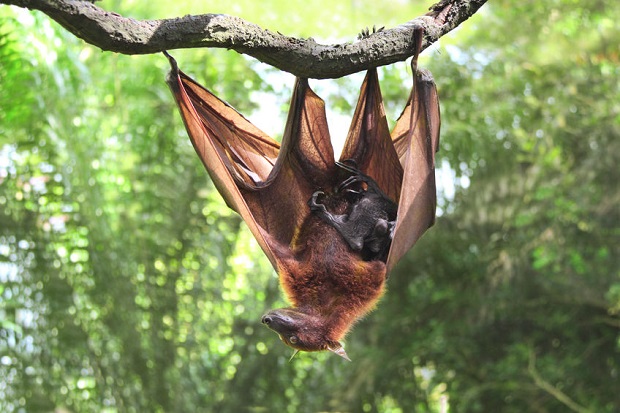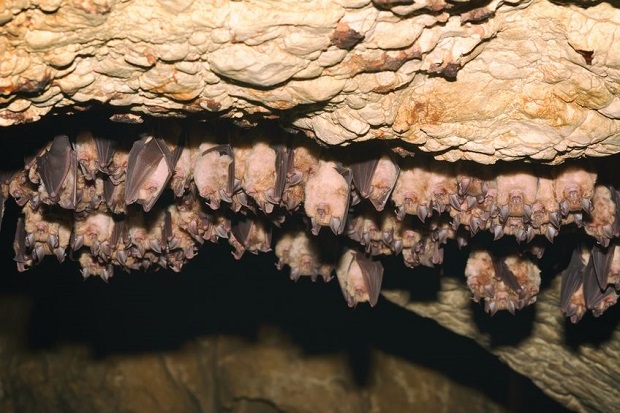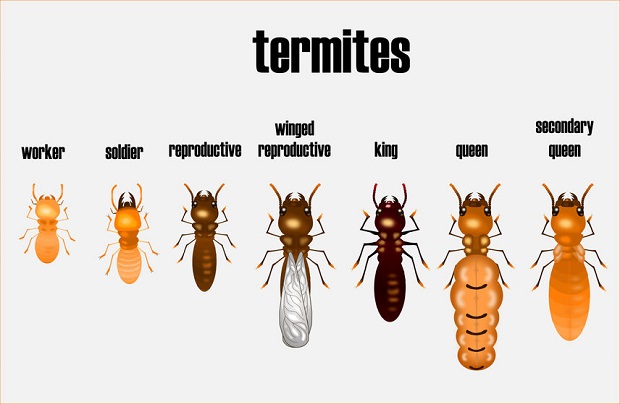
How Long Do Bats Live?
Answer at a Glance: Of the 64 bat species, scientists have documented 22 bat species with an average lifespan of more than 20 years and 6 with an average lifespan of more than 30 years. Unlike similar mammals of comparable size, bats enjoy a lifecycle of more than 3.5 times greater once they escape youth’s perils. [1][2][3]
Dig Deeper
- Average Lifespan of Bats
- The Oldest Bat on Record
- The Perils of a Bat Pup
- Why Do Bats Live So Long?
- Resources
Average Lifespan of Bats
Bats could hold the secret to longevity in humans. According to an article published in the Journal of Gerontology, scientists have documented an average lifespan of more than 20 years for 22 bat species and an average lifespan of more than 30 years for six bat species. [4]
These numbers are truly remarkable, as they defy the established rule that longevity is relative to size in mammals. Bats, however, do not follow this “longevity quotient,” making them a fascinating subject of study. [5]
Adding to the intrigue, it’s a curious fact that males of bat species tend to outlive their female counterparts. Scientists speculate that this may be due to the many stresses of female reproduction or the longer hibernation periods of males. The exact reason remains a mystery, adding to the allure of these fascinating creatures. [6]
The Oldest Bat On Record
In the same paper, the authors reported that they had discovered an older bat than the current record holder of 38 years. The male Brandt’s myotis, a tiny bat from Siberia, set a new world record of at least 41 years old. Since these bats are wild, an older species could be out there somewhere! [7]
The Perils of a Bat Pup
Baby bats are called pups and are usually born one at a time, once a year for many species. A mother bat is attached to her baby and provides food and protection for her pup until it is ready to exist independently of her. The baby bat clings to its mother, drinking her milk until it is old enough to fly and capture its food. Bats can generally leave their mothers and fly in about three weeks, depending on the species. [8]
Before this time, bat pups experience high mortality rates, as they are susceptible to many dangers before they can fly. Some fall from their roosts and will die from the fall or be eaten by predators. They are also vulnerable to disease and parasites. [9]
Why Do Bats Live So Long?
The bat’s lifespan continues to be a subject of intense research, as it tends to live longer than other mammals of similar size. Researchers are actively working to isolate the factors of a bat’s lifestyle that contribute to its longevity. An analysis conducted by the Department of Biology, University of Maryland, revealed that the “bat life span significantly increases with hibernation, body mass, and occasional cave use, but decreases with reproductive rate.” The bat’s diet and colony size appeared not to affect longevity. This ongoing research keeps the field of bat biology dynamic and engaging. [10]
Resources
- [1][3][10] Wilkinson, Gerald S., and Jason M. South. “Life History, Ecology, and Longevity in Bats.” Aging Cell 1.1 (2002): 124-131. Print.
- [2][4][5][6][7] Podlutsky, Andrej. “A New Field Record for Bat Longevity.” The Journals of Gerontology: Series A. Vol: 60, No. 11, pp: 1366-1368.
- [8][9] Smithsonian – “Encyclopedia Smithsonian: Bat Facts.”








